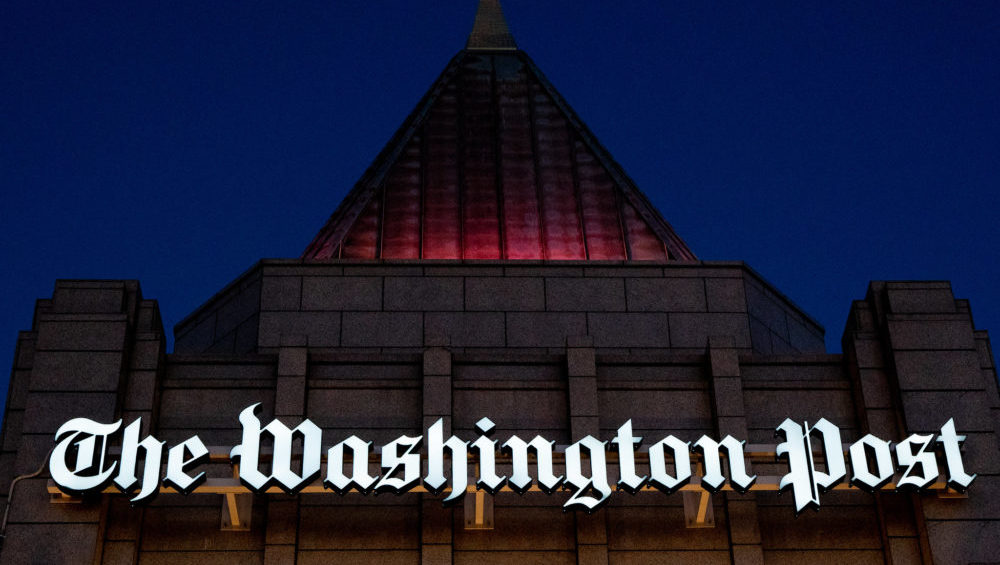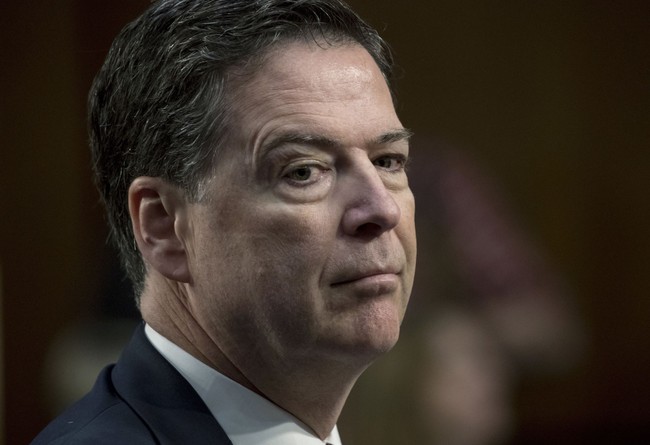Doc7505
Diamond Member
- Feb 16, 2016
- 20,029
- 36,314
- 2,430
For years now, a number of the country's most prominent publications have assumed the groveling role of palace guards for the state and its friends in Congress.

Johnson Set-Up A Case Study In How Agencies Use Corrupt Reporters
For years now, a number of the country's most prominent publications have assumed the groveling role of palace guards for the state.
The Washington Post gave its readers a clear-eyed view this weekend of how American intel agencies work with sympathetic reporters to smear and discredit political opponents, ignoring a specific explanation from one of the article’s targets of how reporters were being used, and leading to embarrassing corrections in multiple articles (as well as in The New York Times and at NBC News).
The story targeted Rudy Giuliani and Wisconsin’s Sen. Ron Johnson, excitedly reporting that they were the targets of Russian disinformation campaigns and had been warned of this by the FBI. Sound familiar? Unsurprisingly, there were a number of problems.
First, powerful people across the planet are often the targets of foreign disinformation campaigns; this is normal. Second, powerful intel agencies have a history of conducting briefings solely to create records that can then be leaked to sympathetic reporters in order to generate stories about said threats. Third, there were no actionable specifics in the Johnson briefing, as the senator explained to the Post, generating strong evidence for his suspicion the FBI was setting him up. And fourth, well, the big Giuliani briefing didn’t actually happen at all.
~Snip~
powerful intel agencies have a known and well-documented history of conducting briefings solely to create records that can then be leaked to sympathetic reporters in order to generate the narratives actors at the agencies want.
This isn’t conspiracy: Former FBI Director James Comey admitted it to the Senate four years ago, testifying that he had briefed the then-president on his theories of Russian collusion — a conspiracy he also testified “was not true” — only to record his interactions and leak them to a friend to hand off to an allied reporter. His goal, he explained, was to “prompt the appointment of a special counsel.”
~Snip~
there were reportedly no actionable specifics in the Johnson briefing. The senator explained this to The Washington Post, and it’s worth notice because it itself is strong evidence for the senator’s near-immediate suspicion that the entire briefing was a set-up by the FBI — just as Trump’s had been.
~Snip~
Finally, the big Giuliani briefing didn’t even happen. Now, that’s not actually that important were you to read the story as it goes right now, but it sure was when it went live, as the original headline and subsequent headlines suggest.
~Snip~
“An overarching media rule in many sectors of US journalism,” left-wing investigative reporter Glenn Greenwald tweeted in March, “is if you recklessly publish a story that maligns people hated by the outlet & its readers/viewers, and the story turns out to be false, the audience doesn’t mind, so the outlet also doesn’t.”
Nor do The Washington Post’s friends. By the time the paper made its essential correction/retraction, allied outlets the country over, including The New York Times and NBC News, had repeated it, forcing embarrassing corrections across the industry. Not that it will reflect poorly on the reporters, who, like their peers in the entire Russia story, will be rewarded for their efforts with awards and job offers for years to come.
Consequences aren’t going to change the behavior of the media, leaving Americans with only one choice: know it’s all a game — and treat it as such.
Comment:
The so called JournOlists like Costa, Lemon, Bernstein, Woodward et al. have become the least
“An overarching media rule in many sectors of US journalism,” left-wing investigative reporter Glenn Greenwald tweeted in March, “is if you recklessly publish a story that maligns people hated by the outlet & its readers/viewers, and the story turns out to be false, the audience doesn’t mind, so the outlet also doesn’t.”
Nor do The Washington Post’s friends. By the time the paper made its essential correction/retraction, allied outlets the country over, including The New York Times and NBC News, had repeated it, forcing embarrassing corrections across the industry. Not that it will reflect poorly on the reporters, who, like their peers in the entire Russia story, will be rewarded for their efforts with awards and job offers for years to come.
Consequences aren’t going to change the behavior of the media, leaving Americans with only one choice: know it’s all a game — and treat it as such.
Comment:
JournOlists no longer are the arbiters of truth, they've become Quisling of the Fifth Coulmn distributors disinformation, lies and whispered falsehoods, Finally coconspirators in the destruction of America.

